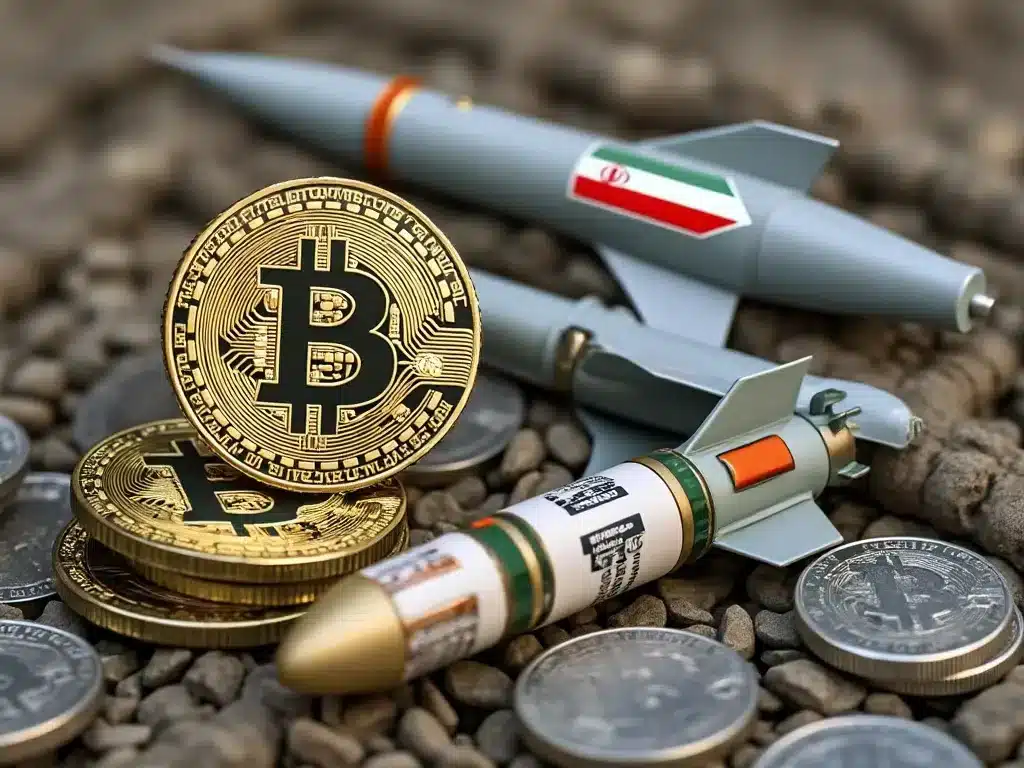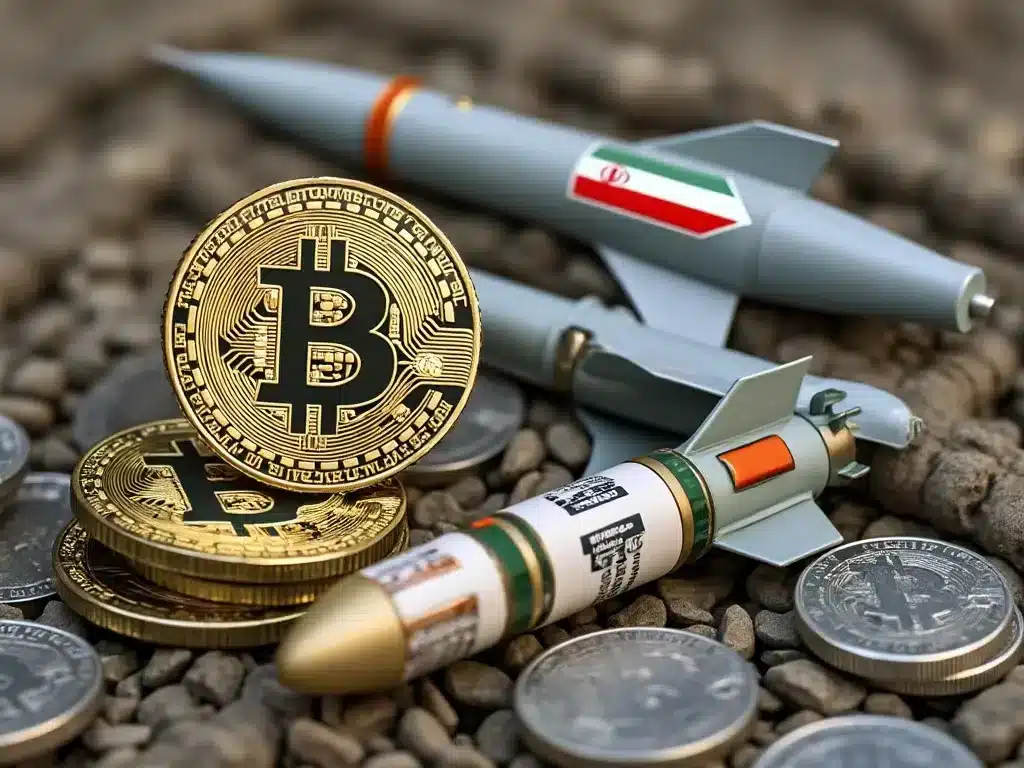Home Finance News Iran Allegedly Funds Ballistic Missile Exports with Cryptocurrency Amid Global Tensions
Iran Allegedly Funds Ballistic Missile Exports with Cryptocurrency Amid Global Tensions
Julie J
September 19, 2024
Iran has reportedly leveraged cryptocurrency, including Bitcoin, to bypass stringent international sanctions, facilitating the export of advanced ballistic missiles to Russia. This move, while not officially confirmed, marks a significant escalation in Iran’s use of digital currencies for evading economic blockades, potentially reshaping the landscape of global arms trade.
Recent intelligence and reports have surfaced suggesting that Iran has supplied Russia with hundreds of ballistic missiles, including variants of the Fateh-110, Zolfaghar, and the newly introduced Fateh-360. These missiles, known for their precision and range, are believed to be part of a broader military aid package in response to Russia’s ongoing conflicts, particularly in Ukraine.
The payment for these missiles, sources whisper in the corridors of power and on platforms like X (formerly Twitter), might have been executed through cryptocurrency transactions. This method allows Iran to circumvent the crippling sanctions imposed by the West, which have restricted traditional financial transactions. The use of Bitcoin and likely other cryptocurrencies provides a level of anonymity and bypasses the conventional banking oversight that these sanctions rely upon.
Why Cryptocurrency?
Cryptocurrencies offer several advantages for such covert operations:
- Anonymity: Transactions can be conducted without revealing the identities of the parties involved, crucial for transactions under sanctions.
- Decentralization: Unlike traditional banking systems, cryptocurrencies operate on decentralized networks, making them resistant to government oversight or seizure.
- Speed and Accessibility: Cryptocurrency transactions can be completed faster across borders, especially in scenarios where time is of the essence.
Global Reactions:
The international community has expressed mixed reactions. While some nations view this as an innovative use of blockchain technology for financial sovereignty, others see it as a dangerous precedent for bypassing international law and sanctions.
- Economic Analysts: Speculate that this could lead to increased volatility in cryptocurrency markets, as seen with Bitcoin’s sharp fluctuations following geopolitical news.
- Security Experts: Warn this could set a precedent for other nations or non-state actors to fund arms or other sanctioned goods, potentially destabilizing regions further.
- Western Governments: Are likely reevaluating their strategies on cryptocurrency regulations, considering the implications for national security.
Market Impact:
Following these reports, the cryptocurrency market experienced significant turbulence. Bitcoin, in particular, saw a dramatic dip below $60,000, reflecting investor nervousness over how geopolitical events might influence the value and legality of cryptocurrencies. However, there was also a noted recovery, suggesting a complex market reaction to the news, possibly driven by speculative buying or support from those seeing long-term potential in cryptocurrencies amidst global financial shifts.
Conclusion:
The alleged use of cryptocurrencies by Iran to fund its missile exports to Russia underscores a new era in financial warfare and international relations. While not confirmed by official channels, the implications of such a strategy could lead to a rethinking of how nations approach digital currencies, sanctions, and the arms trade. This development might just be the tip of the iceberg in how blockchain technology could redefine global economic and military strategies.
Post Views: 175
Crypto newsletter
Get the latest Crypto & Blockchain News in your inbox.
Get the latest updates from our Telegram channel.
Join Now
×














